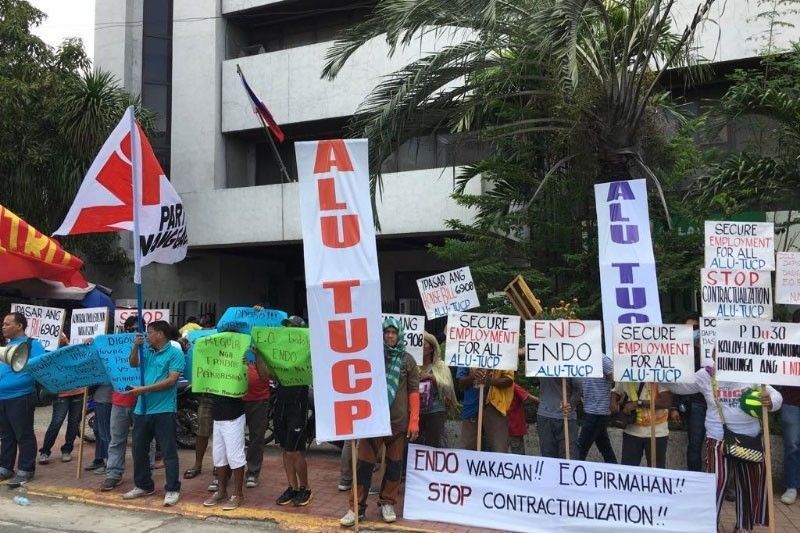US report: Philippine laws on discrimination, workers' rights not effectively implemented

MANILA, Philippines — While the Philippines has laws and regulations against discrimination and to protect workers' rights, the government does not implement them effectively, the US State Department said in its 2021 Human Rights report.
Persons with disabilities, indigenous peoples
The US State Department noted that the country’s laws aims to promote equal access for those with disabilities to all public establishments and it also prohibits discrimination against persons with disabilities, it said that equal access laws remain ineffective because of implementation issues, funding requirements, among others.
"The law was not effectively enforced and many barriers remained for Persons With Disabilities," it said.
Meanwhile, the US State Department said that while there are no laws that discriminate against indigenous peoples, there remains a cultural bias against them. It also said indigenous groups, such as communities that belong to the Lumad schools and students, have been red-tagged and been subjected to police raids.
READ: Rights groups sound alarm on 'troubling' raid on Lumad school in Cebu
Women, LGBTQI+, children
The report also took note that officials in the Philippines do not allow transgender individuals from getting passports that reflect their gender identity, forcing them to use gender that is assigned at birth.
Members of the LGBTQI+ community also continue to face discrimination, it said. It also mentioned the case of Ebeng Mayor, a transgender man who was raped and physically abused last year.
Meanwhile, Washington emphasized that the obstacles faced to obtain rape convictions in Manila has delayed effective enforcement on rape cases.
There are still women who do not report cases of sexual violence due to the cultural and social stigma, it added.
On the other hand, it did note the country’s efforts to punish and prevent acts of sexual harassment in public places, online spaces, and schools.
"Despite the president’s support for a law preventing sexual harassment, local organizations observed that on multiple occasions Duterte’s rhetoric promoted violence against women," it said.
The US State Department flagged the country for not having a law that allows divorce, and that the alternatives available are complex and expensive.
Meanwhile, it also noted the rise of the cases of abuse against women and children during the lockdown implemented because of the pandemic.
READ: Police told to be proactive vs violence against women and children during ECQ
Forced and early marriage is still an issue, the US State Department said. President Rodrigo Duterte signed into law a measure that prohibits child marriage early this year. However, the department also emphasized that children here remain vulnerable to sexual exploitation.
It also said children here get a poor quality of education and access to which also remains difficult.
Child labor also remains a problem, noting that the minimum age of work in the country "is lower than the compulsory age, enticing some children to leave school before the completion of their compulsory education."
Meanwhile, the report also mentioned that even though there are laws that set limitations on the number of hours children are allowed to work, it does not actively enforce these regulations, nor does it actually impose penalties on those who violate these laws.
The state department highlighted that the country’s child laborer rescue program through the Department of Labor and Employment conducted nine operations from January to July last year in karaoke bars, massage parlors, saunas, bathhouses, and farms.
The program rescued 18 minors from "hazardous and exploitative working conditions."
It said most other cases reported to the DOLE are related to child labor in domestic service and the agricultural sector, such as its fishing industries, palm oil, and in the sugar cane industries.
Workers' rights
Meanwhile, Washington said that the Philippine government also does not actively enforce minimum wage laws, noting that “violations of minimum wage standards were common.”
"Complaints about payment below the minimum wage and nonpayment of social security contributions and bonuses were particularly common at companies in the Special Economic Zones," the state department said, also stating that the DOLE does not have data on the compliance of labor standards in those areas.
Meanwhile, it also noted that employees in the Philippines face difficulties when they try to organize, taking note that the Department of Interior and Local Government has ordered the submission of a list of members of two unions, claiming that they were part of the communist party.
READ: 'No place in a democracy': Academe hits attacks on activists, red-tagging of teachers
- Latest
- Trending































